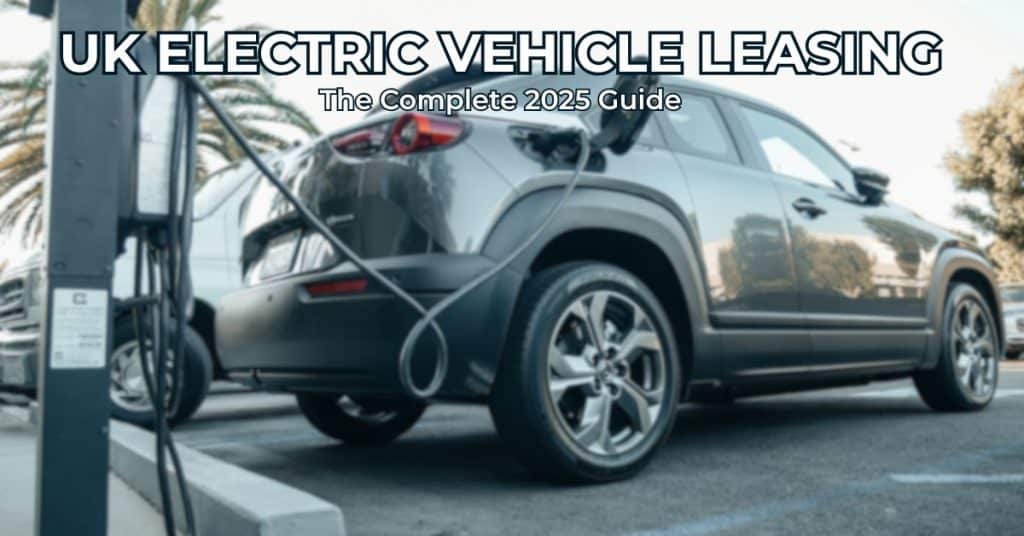UK Electric Vehicle Leasing: The Complete 2025 Guide
Why 80% of UK EV Buyers Choose Leasing – And Whether You Should Too

Why EV Leasing Dominates the UK Market
Picture this: you want to drive the latest Tesla Model Y, but paying £45,000 upfront feels overwhelming. Meanwhile, your colleague drives the same car for £450 per month through leasing. This scenario explains why 80% of UK electric vehicle acquisitions happen through leasing – a dramatic shift that’s reshaping how we think about car ownership.
The UK EV leasing market has exploded to £57.13 billion in 2025, growing at an extraordinary 20.81% annually. But what makes leasing so compelling for electric vehicles specifically, and should you join the 8 out of 10 drivers choosing this route?
Understanding EV Leasing: The Basics Explained
What Makes EV Leasing Different
Traditional car leasing involves paying monthly to use a vehicle you’ll eventually return. EV leasing follows the same principle but with crucial differences that make it particularly attractive:
Think of it like renting vs buying a smartphone. With technology evolving rapidly, many people prefer upgrading to the latest iPhone every two years rather than owning one that becomes outdated. EVs face similar technological advancement – battery technology, charging speeds, and autonomous features improve dramatically each year.
When you lease an EV, you’re essentially paying for the vehicle’s depreciation during your usage period, plus interest and fees. Here’s the critical difference: EV depreciation is both higher and more unpredictable than traditional vehicles, making leasing an effective way to transfer that risk to the leasing company.
The Numbers That Matter
A typical EV lease structure looks like this:
- Initial payment: 3-9 months upfront (£750-£4,500)
- Monthly payments: £250-£900 depending on vehicle class
- Contract length: 2-4 years (3 years average)
- Annual mileage: 8,000-20,000 miles
Real Example: A Tesla Model Y costing £45,000 to purchase might lease for £450/month with a £1,350 initial payment over 3 years. Your total cost: £17,550 vs. £45,000 to buy – plus you avoid depreciation risk.
The Financial Advantage: Why the Math Works
Total Cost of Ownership Breakdown
Let’s examine why leasing often delivers better value using real 2025 figures:
EV Leasing (3-year Tesla Model Y example):
- Monthly payment: £450 × 36 months = £16,200
- Initial payment: £1,350
- Insurance: £700/year × 3 = £2,100
- Total 3-year cost: £19,650
EV Purchasing (same vehicle):
- Purchase price: £45,000
- Financing interest (4% APR): £2,800
- Insurance: £700/year × 3 = £2,100
- Depreciation (40% over 3 years): £18,000
- Total 3-year cost: £47,900
- Resale value after 3 years: £27,000
- Net cost: £20,900
The leasing advantage becomes clearer when you factor in:
- No depreciation risk: You’re protected if EV values drop faster than expected
- Warranty coverage: Most issues covered throughout lease term
- Predictable costs: Fixed monthly payments make budgeting easier
Government Incentives That Change Everything
The UK government has structured incentives to heavily favor EV leasing, particularly for businesses:
Company Car Tax Benefits:
- EVs: 2% Benefit-in-Kind rate
- Petrol/diesel: 20-37% Benefit-in-Kind rate
- Real saving: A £40,000 EV costs £800/year in company car tax vs. £8,000+ for equivalent petrol car
Salary Sacrifice Schemes: Employees can lease EVs through pre-tax salary deductions, saving 20-40% on total costs. For a higher-rate taxpayer, a £400/month lease effectively costs £240/month after tax savings.
Market Leaders and What They Offer
The Big Players
The UK EV leasing landscape divides into three categories:
Traditional Giants:
- Enterprise Holdings: Dominates fleet leasing with comprehensive corporate solutions
- Santander Consumer Finance: Offers competitive rates with digital-first approach
- Ford Motor Company: Strong fleet programs leveraging Mustang Mach-E popularity
Premium Manufacturers:
- Tesla: Direct-to-consumer leasing with premium positioning (£500-800/month)
- Audi AG: Luxury focus with Q4 e-tron and Q8 e-tron (£600-900/month)
- BMW Group: Business leasing specialist with i4 and iX models
EV Specialists:
- GRIDSERVE: EV-only provider offering integrated charging solutions
- Octopus Electric Vehicles: Energy company leveraging smart tariff integration
- Onto: Subscription-based flexible leasing targeting urban professionals
Emerging Models: Subscription Services
Companies like Onto and Elmo are pioneering car subscriptions – month-to-month EV access including insurance, maintenance, and charging. While more expensive (£600-1,200/month), these services appeal to consumers wanting maximum flexibility.
Most Popular EVs for Leasing
The Current Champions (2025 Registration Leaders)
Based on latest SMMT data, here are the most leased EVs:
Small/Urban Category (£250-350/month):
- MINI Cooper Electric – 2,074 registrations (February 2025)
- MG4 EV – Affordable with impressive range
- Nissan Leaf – Proven reliability, lower lease rates
Family Category (£350-550/month):
- Tesla Model Y – 1,990 registrations, premium positioning
- Tesla Model 3 – 1,861 registrations, tech-focused appeal
- Volkswagen ID.4 – German engineering, competitive pricing
Luxury Category (£600-900/month):
- Audi Q4 e-tron – Premium interior, strong residuals
- BMW i4 – Performance-oriented, business favorite
- Jaguar I-PACE – British luxury, distinctive styling
Availability and Wait Times
Most mainstream EVs are readily available for immediate delivery. Premium models like Tesla Model Y might require 1-3 month waits, while new launches (Audi’s 20+ new models arriving through 2025) may have longer lead times.
Business vs Personal Leasing: Key Differences
Business Leasing (75% of Market)
The overwhelming majority of EV leases are business arrangements, driven by compelling tax advantages:
Financial Benefits:
- 100% capital allowance: Full EV cost deductible against corporation tax
- 2% Benefit-in-Kind: Minimal personal tax burden for employees
- VAT recovery: Businesses can reclaim 50-100% of lease VAT
Typical Structure:
- Higher mileage allowances (15,000-20,000 miles/year)
- Fleet management services included
- Maintenance and insurance often bundled
Personal Leasing (25% of Market)
Personal leasing is growing rapidly, particularly through salary sacrifice schemes:
Key Characteristics:
- Lower mileage limits (8,000-12,000 miles/year)
- Individual insurance responsibility
- More flexible contract terms
Salary Sacrifice Impact: 30% of personal leases now use salary sacrifice, with employees saving 20-40% through pre-tax deductions. A £400/month lease costs a higher-rate taxpayer just £240/month after tax savings.
Charging Considerations for Lessees
Home Charging Solutions
Most EV leasing deals can include home charging installation:
- Government subsidy: £350 through Homecharge Scheme
- Installation cost: £500-1,500 depending on complexity
- Monthly charging cost: ~£17 for 60kWh (full charge)
Apartment dwellers benefit from the Enhanced Capital Allowance scheme, with local authorities receiving £25 million for at-home charging infrastructure.
Public Charging Networks
The UK’s 82,000 public charge points are rapidly expanding, with industry investing £6 billion alongside £63 million government funding in 2025.
Charging Costs:
- Home charging: ~£5 per 100 miles
- Public charging: ~£8-12 per 100 miles
- Rapid charging: ~£15-20 per 100 miles
Many leasing companies offer charging partnerships:
- GRIDSERVE: Integrated access to Electric Highway network
- Enterprise: Partnerships with major charging operators
- Tesla: Supercharger network access (expanding to non-Tesla EVs)
Insurance and Maintenance Realities
EV Insurance Costs
EV insurance averages £700/year compared to £600 for petrol/diesel vehicles. Higher costs reflect:
- Expensive repairs: Battery and specialist parts cost more
- Limited repair networks: Fewer qualified technicians
- Higher vehicle values: EVs often more expensive than ICE equivalents
Gap insurance becomes crucial for EVs due to higher depreciation rates. At ~£150/year, it protects against total loss scenarios where insurance settlements fall short of outstanding finance.
Maintenance Advantages
EVs require approximately 30% less maintenance than traditional vehicles:
- No oil changes, spark plugs, or exhaust systems
- Regenerative braking reduces brake wear
- Fewer moving parts mean fewer failure points
Battery warranties typically cover 8 years/100,000 miles, protecting against degradation. Replacement costs (~£7,235 for 60kWh battery) are usually covered during warranty periods.
Regional Variations Across the UK
England: Leading Adoption
London and the Southeast dominate EV leasing due to:
- Dense charging infrastructure
- ULEZ and congestion charge exemptions
- Higher average incomes
- Urban driving patterns suit EV range
Scotland: Government Support
Scotland shows strong growth through:
- Devolved government EV incentives
- Urban charging networks in Glasgow and Edinburgh
- Public sector fleet electrification programs
Wales and Northern Ireland: Catching Up
Rural areas face challenges:
- Limited charging infrastructure
- Lower population density
- Reduced dealer coverage
- However, Cardiff and Belfast showing urban growth
When Leasing Makes Sense (And When It Doesn’t)
Leasing Is Ideal For:
Technology Enthusiasts: Want latest EV features and battery technology Business Users: Maximize tax benefits and predictable costs Urban Drivers: Short commutes, access to charging infrastructure Risk-Averse Consumers: Prefer predictable costs over ownership risks Fleet Managers: Need scalable, manageable vehicle programs
Consider Purchasing If:
High-Mileage Drivers: Annual mileage exceeds 20,000 miles Long-Term Ownership: Plan to keep vehicle 5+ years Rural Location: Limited charging infrastructure or dealer support DIY Maintenance: Prefer handling repairs and modifications Investment Mindset: Believe in EV resale value stability
The Future of UK EV Leasing (2025-2030)
Market Projections
The UK EV leasing market is projected to reach £143.61 billion by 2030, driven by:
- 2030 ICE sales ban: Creating urgency for EV adoption
- Infrastructure expansion: 100,000+ public chargers by 2027
- Technology improvements: 800V fast charging, solid-state batteries
- Cost reductions: Battery prices continuing to fall
Emerging Trends
Subscription Models Expanding: Month-to-month flexibility attracting younger urban consumers
Digital-First Platforms: Online-only providers like Onto growing rapidly
Integrated Energy Services: Leasing companies partnering with energy suppliers for complete mobility solutions
Autonomous-Ready Vehicles: Future leases will include self-driving capabilities
Making Your Decision: A Practical Framework
Calculate Your True Costs
Before choosing leasing or purchasing, calculate your specific situation:
- Annual mileage: High-mileage drivers face excess charges
- Depreciation protection: More valuable for expensive EVs
- Tax situation: Business users and higher-rate taxpayers benefit most
- Technology preference: Early adopters value upgrade flexibility
Questions to Ask Leasing Providers
- What’s included in monthly payments? (maintenance, insurance, charging?)
- Excess mileage charges and calculation method?
- End-of-lease options and purchase prices?
- Charging infrastructure partnerships and support?
- Early termination fees and conditions?
Red Flags to Avoid
- Unusually low monthly payments hiding high upfront costs
- Restrictive mileage limits for your driving patterns
- Limited charging support or partnerships
- Poor customer service reputation
- Hidden fees for normal wear and tear
Conclusion: The Smart Money Is on Leasing
The statistics speak clearly: 80% of UK EV buyers choose leasing because the financial and practical advantages are compelling. With government incentives, technological uncertainty, and depreciation risks, leasing provides a smart path to EV adoption.
However, leasing isn’t universally optimal. High-mileage drivers, long-term ownership advocates, and those in areas with limited infrastructure might find purchasing more suitable.
The UK EV leasing market’s 20.81% growth rate reflects not just consumer preference, but a fundamental shift in how we approach vehicle ownership in an era of rapid technological change. As the 2030 ICE ban approaches and charging infrastructure expands, leasing positions you at the forefront of the transport revolution while minimizing financial risk.
Whether you choose a £250/month MINI Cooper Electric or a £800/month Tesla Model Y, leasing offers access to cutting-edge technology without the traditional ownership burdens. In a market where change is the only constant, flexibility has become the most valuable currency.
Ready to explore EV leasing options? Use our tools and guides to find the perfect electric vehicle lease for your needs and budget.
